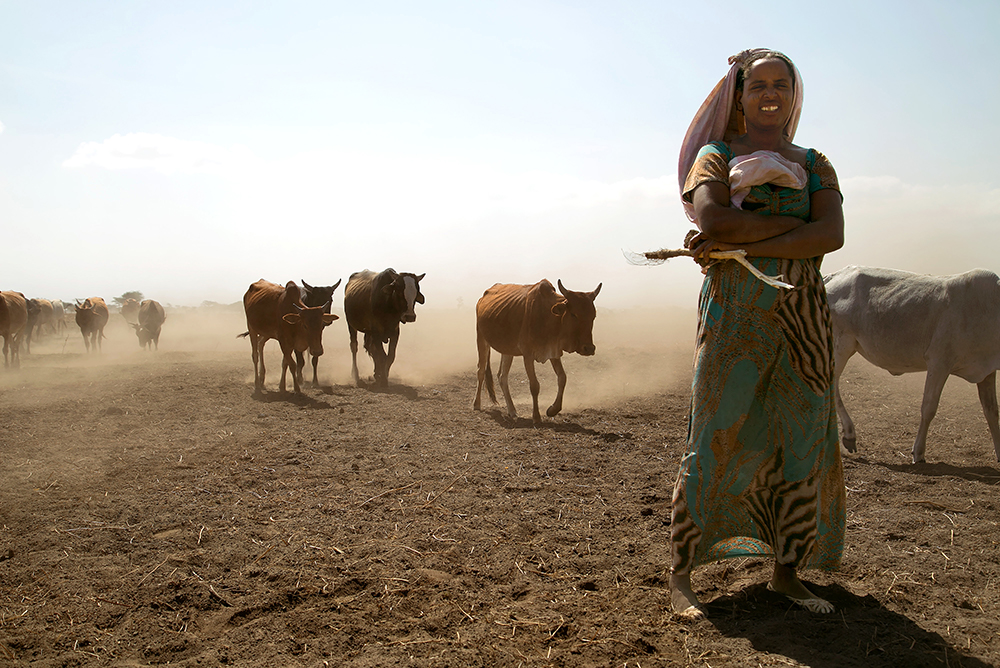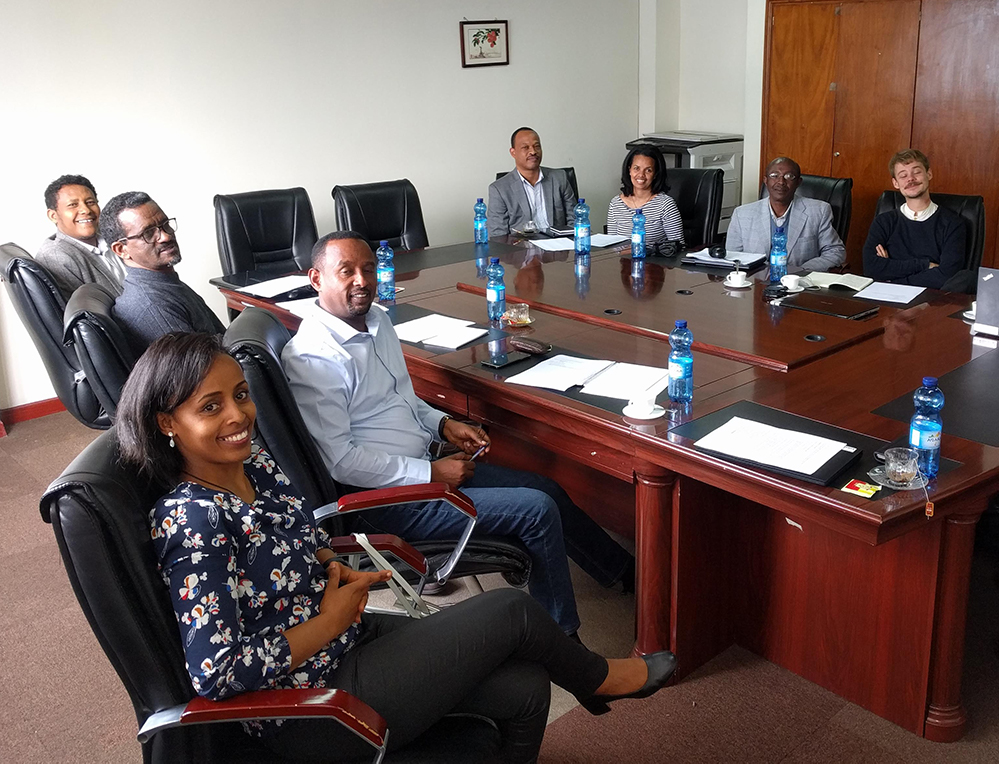Building Resilience to Climate Change in Ethiopia - What do we know so far?
By Peter Fisker, Lars Arne Johannes Güettler, Tseday Mekasha and Finn Tarp.

Climate Change is here and we need to respond
Climate change is not only a future threat, it is already here and the rural poor, who depend on rain-fed agriculture and pastoralism, feel its consequences.
This is particularly true in Ethiopia. The prolonged 2015-2017 drought in Ethiopia was arguably one of the worst to have hit the country in modern history, leaving some 10 million people dependent on food assistance. Thus, the need to understand how to adapt to, and strengthen resilience to climate change is more urgent than ever.
Building Resilience and Evaluating the Building
To help address this, DERG, Addis Ababa University, and Policy Studies Institute (PSI) in Ethiopia launched a joint research project in May with funding from Danida (FFU/DFC), under the label of “Building Resilience to Climate Change in Ethiopia: Exploring Options for Action”. The overall aim of the project is to build a knowledge base about the drivers of resilience in Ethiopia at different levels and enhance our understanding on ‘what works best’ in Ethiopia in terms of building resilience to climate change. The project aims to identify the characteristics that make some households more resilient relative to others and how policy can strengthen those identifying traits. In addition, we will evaluate some large government programmes aimed at enhancing resilience.
Gathering What We Know
While collaboration is hugely rewarding, it can also be grounds for misunderstandings when coordination fails or there is a lack of common ground. To get all project researchers on the same page and share our respective experiences, the first task of the project has been to write a common review paper on the existing knowledge base within the realm of climate change resilience building in Ethiopia.

Gathering contributions from eight researchers from three different institutions, with different fields of expertise and writing styles, a common ground slowly starts to appear. It is the advantage of collective intelligence that it is greater than the sum of its parts. By joining forces and sharing what we know, our ambition is that the results will come out stronger.
At the Climate Research Frontline
The messages from the review paper have reiterated the urgent need of the project. There is a large body of climate change resilience enhancing actions, taken by households, at the community level, and in the form of government led initiatives, but the body of research has not quite kept up. While initiatives are taking place at different levels to adapt to climate change and strengthen the resilience against it, there is a pressing need for evidence to base policy decisions on.
The project finds itself at the frontline of climate change policy-research, studying ongoing impacts of climate change and the best ways of adapting to its disastrous effects. It is the conviction of DERG and our collaborators that a joint evidence based effort is the best way forward in the struggle to shield livelihoods and the economy from climate change induced hazards.
This work was supported by the Danish International Development Agency—Ministry of Foreign Affairs of Denmark (MFA) under the project “Building Resilience to Climate Change in Ethiopia: Exploring Options for Action (Project file no.: DFC File No. 18-07-KU).
